Bruises are something everyone has experienced at some point in life. You bump into something, or maybe someone, and soon after, a discolored mark appears on your skin. But while bruising is common, some people seem to bruise more easily than others. Have you ever wondered why? Let’s dive into the science and factors that explain why some individuals are more prone to bruising than others.
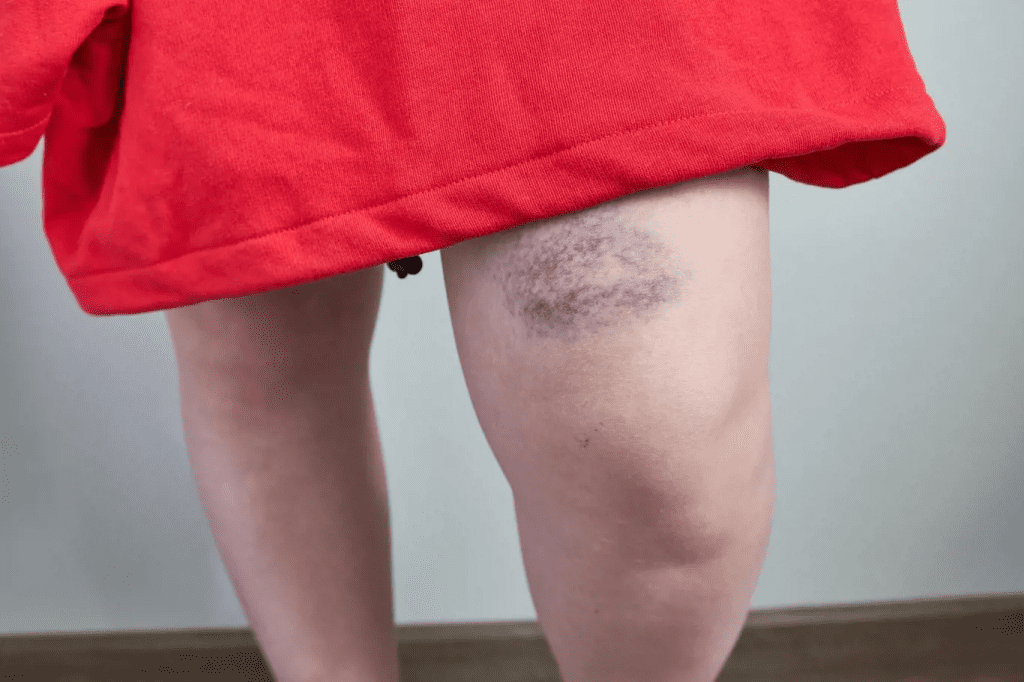
What Causes Bruises?
Bruises, medically known as contusions, occur when small blood vessels, called capillaries, are damaged. This damage allows blood to leak into the tissues just beneath the skin’s surface. The result? A patch of skin that changes color from red to purple, blue, green, or even yellow as it heals. This discoloration is simply your body reabsorbing the blood over time.
Common causes of bruising include bumps, falls, or minor injuries. But there are times when bruises seem to appear out of nowhere, without any clear reason. In these cases, various underlying factors could be responsible, including vitamin deficiencies, medications, and medical conditions. For example, a lack of zinc, vitamin K, or vitamin B could make you more susceptible to bruising.
Age and Its Impact on Bruising
As you get older, you might notice that you bruise more easily than you did when you were younger. This is because, over time, skin becomes thinner, and blood vessels become more fragile. Thin skin offers less protection for blood vessels, which makes it easier for them to break with minimal impact. So, if you’ve ever wondered why your grandparents seem to get bruises more often, now you know—it’s part of the aging process.
Genetics: Are Some People More Prone to Bruising?
Yes, genetics plays a role in how easily you bruise. Some people are simply born with skin that bruises more easily. Women, for example, tend to bruise more easily than men, largely because men typically have thicker skin. Additionally, aging women often lose collagen, which is crucial for skin elasticity, making them even more prone to bruising, especially after menopause.
Your genetic makeup can also determine whether your blood clots efficiently or not. If your body takes longer to clot blood after a minor injury, you’re more likely to experience significant bruising. Blood-related disorders, such as hemophilia or von Willebrand disease, can severely impact how easily you bruise.
Why Do Medications Affect Bruising?
Medications can also play a significant role in bruising. Blood thinners like aspirin, warfarin, or ibuprofen reduce your blood’s ability to clot, making it easier for bruises to form. Even medications that aren’t directly related to blood clotting, like steroids or NSAIDs, can impact how easily you bruise by weakening blood vessels.
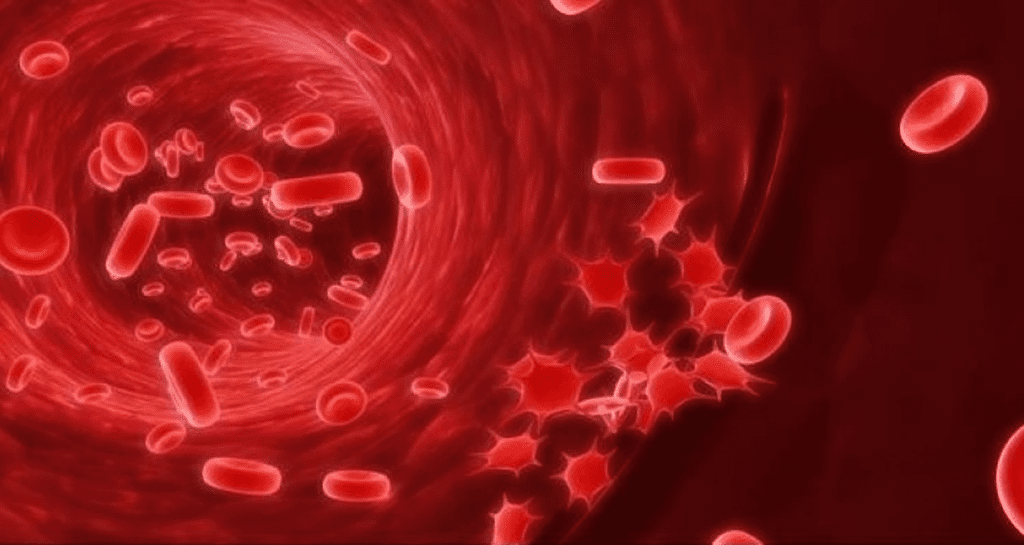
If you’re someone who takes these medications and frequently experiences bruises, it’s not just in your head. These meds slow down the blood clotting process, leading to increased bruising, even with minor trauma. Always consult your doctor if you notice unusual or excessive bruising, especially when taking new medications.
Diet and Bruising: Can What You Eat Make a Difference?
Believe it or not, your diet can influence how easily you bruise. As mentioned earlier, deficiencies in vitamins like K and C, as well as zinc, can contribute to more frequent bruising. Let’s take a closer look at how these nutrients affect your skin and blood vessels.
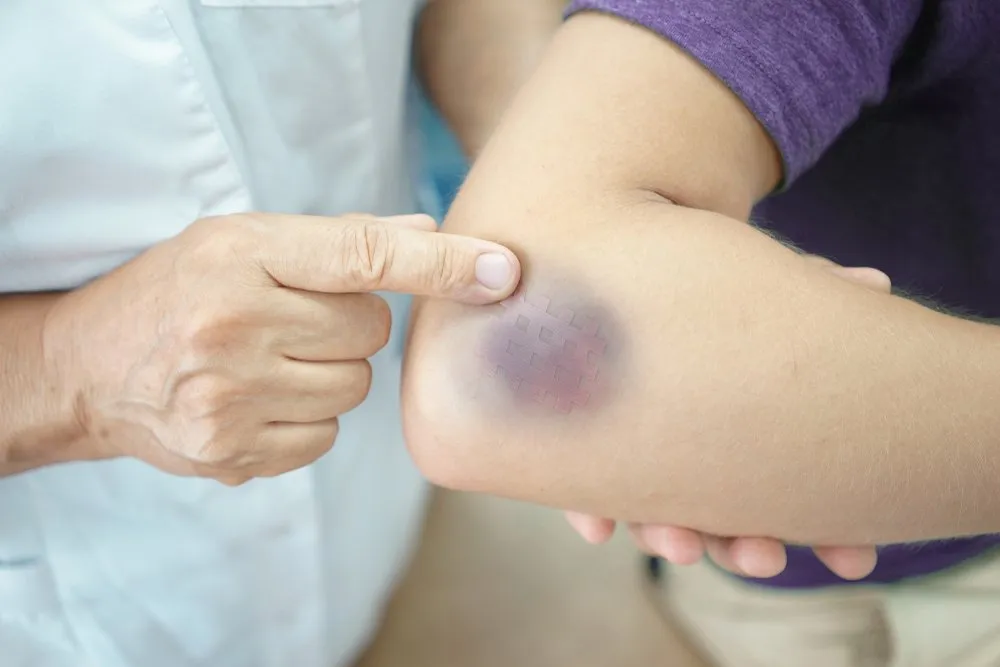
- Vitamin K helps your blood clot, and a deficiency can result in more frequent or severe bruising.
- Vitamin C is crucial for maintaining healthy skin and blood vessels. Without enough of it, your blood vessels become fragile, making it easier for bruises to form.
- Zinc supports tissue repair and healing. A deficiency in zinc can slow down the healing process of bruises.
To strengthen your skin and reduce the likelihood of bruising, consider including foods rich in vitamin C (like oranges, strawberries, and bell peppers), vitamin K (found in kale, spinach, and broccoli), and zinc (present in nuts, seeds, and legumes) in your diet.
Medical Conditions Linked to Easy Bruising
While dietary changes and avoiding certain medications can help reduce bruising, sometimes the issue is linked to an underlying medical condition. If you find yourself bruising without any clear cause, you might want to get checked for conditions like:

- Cirrhosis
- Cushing’s Syndrome
- Blood cancers, such as leukemia or lymphoma
- Bleeding disorders, including hemophilia or von Willebrand disease
These conditions impact your blood’s ability to clot or your body’s ability to heal, resulting in more frequent or severe bruising.
How to Speed Up Bruise Healing Naturally
Bruises typically last one to two weeks, during which they change colors as your body reabsorbs the blood. However, if you’re looking to accelerate the healing process, there are some natural remedies you can try:
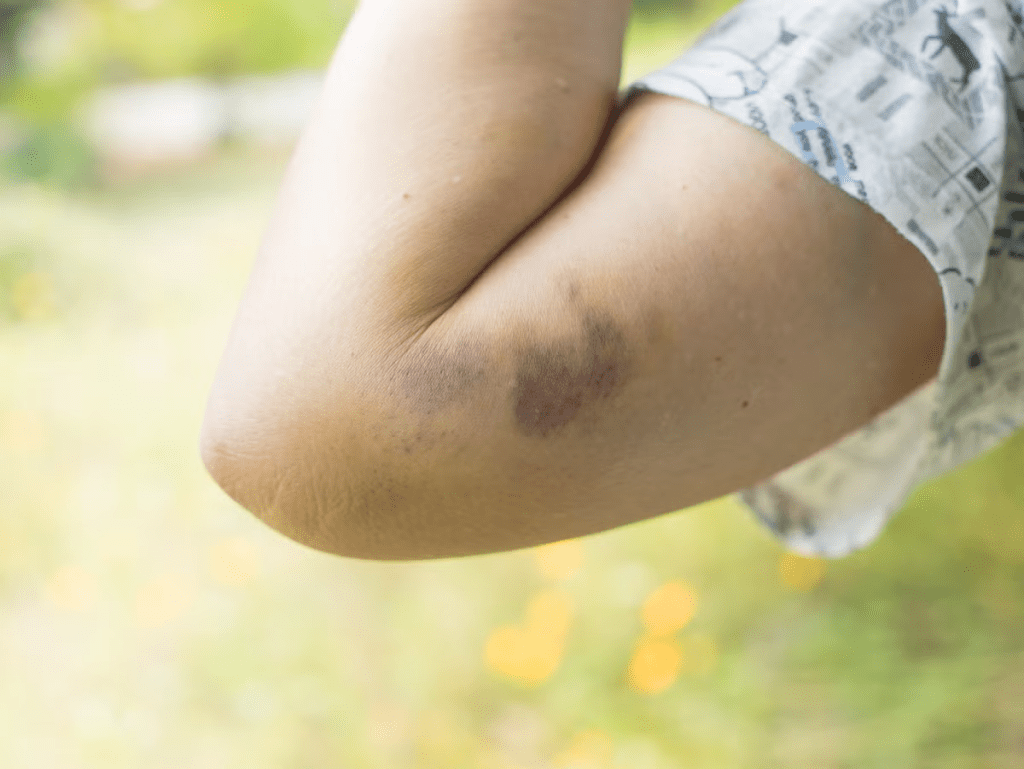
- Ice therapy: Apply an ice pack wrapped in a cloth to the affected area immediately after injury. This can reduce blood flow and minimize the size of the bruise.
- Heat therapy: After 48 hours, switch to warm compresses to increase blood circulation and promote faster healing.
- Compression: Gently wrap the bruised area with a compression bandage to reduce swelling and speed up healing.
- Arnica cream: A popular natural remedy, arnica cream is believed to reduce inflammation and accelerate the healing process of bruises.
- Bromelain: Found in pineapples, bromelain is an enzyme that helps reduce swelling and speeds up the absorption of blood, helping bruises heal faster.
Conclusion: Understanding the Causes Behind Easy Bruising
Bruising is a common bodily response to minor injuries, but for some people, it happens more frequently and with less trauma. Factors like age, genetics, medications, diet, and underlying medical conditions can all play a role in how easily you bruise.
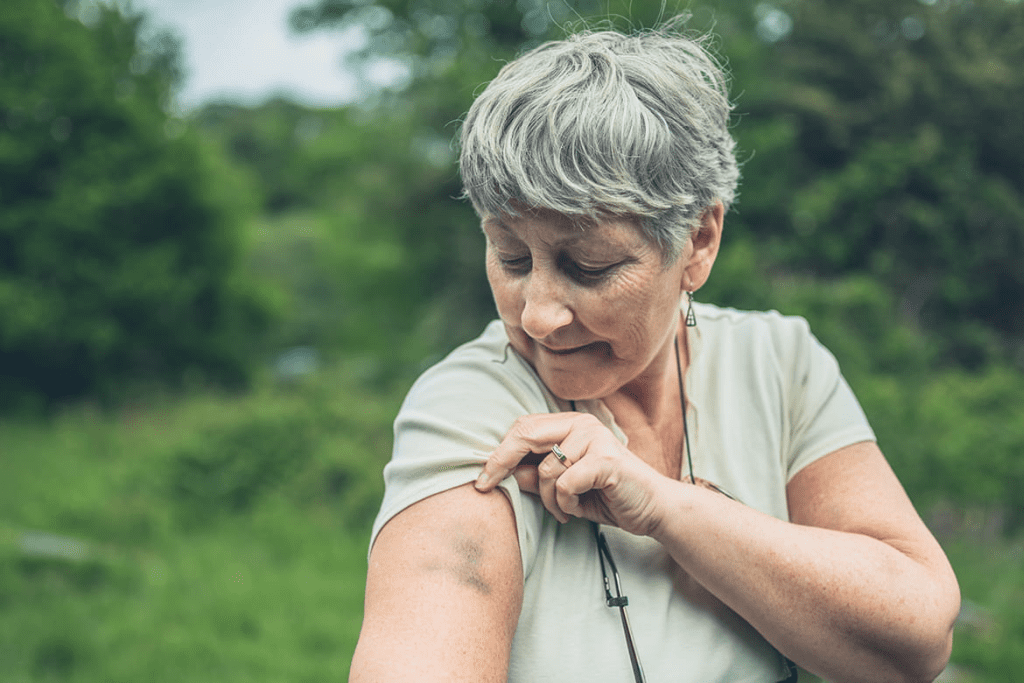
If you find yourself bruising more than usual, it’s essential to take a closer look at these factors. Simple dietary adjustments, like adding more vitamin K or zinc to your diet, might help. In more severe cases, a visit to the doctor could reveal underlying health issues. Either way, understanding the causes behind easy bruising can help you take control and potentially reduce its frequency.
While bruises are usually harmless and fade within a week or two, it’s always a good idea to pay attention to your body’s signals. If you notice persistent or unusual bruising, don’t hesitate to seek medical advice.


